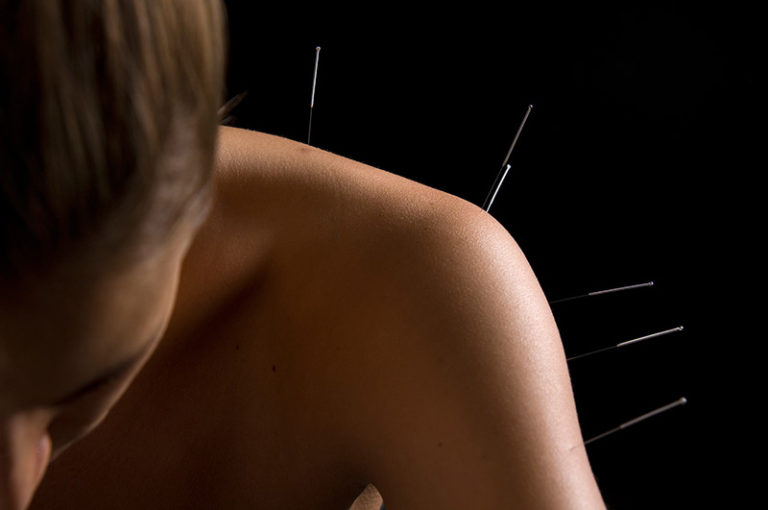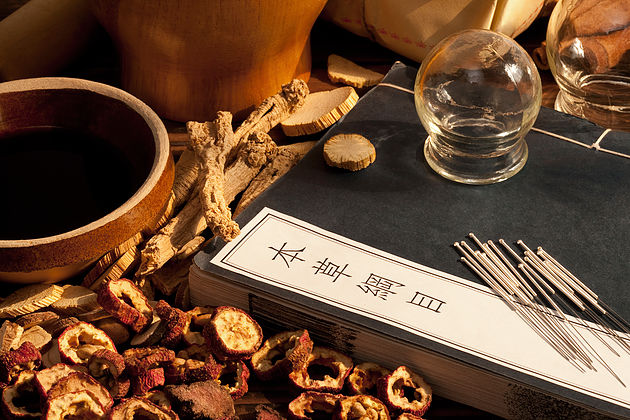Watch part 2 of this interview in this video or listen to the full interview at this link…
https://retirementafter60.com/episode-18…
Part 2 of the Acupuncturist Podcast Interview – What should you expect at your first Acupuncture Appointment?
So when someone comes in for their first appointment, walk the audience through the process of that. What do you actually do when someone comes to see you.
Sure, like any medical office, they’re going to fill out an intake form, a medical history. So we’ll go through that. A lot of people ask about insurance coverage, we always tell them, check with your provider if acupuncture is covered we help with the paperwork necessary to get reimbursed.
As far as the interview, we look at them in terms from perspective of Chinese medicine. So that’s doing the pulse diagnosis, which I just described, the tongue diagnosis – your tongue tells a lot about your internal environment. We go through their medical history. We ask them about medications, operations they’ve had, etc. And we get to know the individual, you know, what their priority is what what are we going to take care of. Sometimes people come in with a multitude of problems at the same time. If we can first prioritize the number one problem. If we can do other things at the same time we will. Sometimes we have to get the first condition, you know, under control and eradicated, and then we’ll move on other things. I kind of jokingly say this is one stop shopping. So the person might have an eye problem, they may have an orthopedic type problem, may have female gynecological problem, so we’ll work that in. And see, sometimes the points overlap, sometimes you treat your multiple conditions at the same time. So if we can do that, we do that.
Once we go through the diagnosis, we figure out what the treatment plan is. If the person has a chronic condition and may need a series of visits. If it’s acute, maybe a few visits just takes care of it. It all depends on basically three factors: 1. how serious his condition? 2. How long have you had it for? What is the age of the patient? And I mean, the chronological age, not necessarily the constitution. Some elderly people have very strong constitution, some young people aren’t. So we work well that in, we’ll figure out – first I figure out if we can help you. If I can’t, I’ll tell you, if we can, then we’ll figure out what the treatment plan is going to be.
Then they have the acupuncture treatment. That’s all done the first day – consultation and treatment. Any visits thereafter are a lot briefer because you don’t have to fill out the forms or have the interview. So that’s basically it.
Very interesting but the, the insurance part of this I’m sure people are interested in that. Do you know offhand, if it’s covered by Medicare, or not, I don’t know off the top of my head.
Now, that’s an interesting thing because just in the last six months I’d say they’re beginning to open up coverage for back pain for Medicare. When they first started, they said the acupuncturist – which is a standalone profession – has to be working with a medical doctor in order to be covered. Now, that’s of course going to be challenged by the 1000s of acupuncturist, which are individually licensed and independent from a medical setting or MD setting. Okay, so that’s worked on right now.
Many people have Medicare will rely on an ancillary, you know, a backup insurance plan that they have. So if that insurance, a backup plan covers it, or if their primary covers it, then, you know, we can go forward and the office manager can help them with the billing.
Acupuncture Risks
So in your experience is there is there really any risk associated with acupuncture?
From a trained, licensed practitioner, No. The Acupuncture Examining Board in New Jersey is part of the Board of Medical Examiners. So there is testing requirements, you can obtain a list of practitioners, either from there or the New Jersey Acupuncture Association, which you can go their website and they’ll have the practitioners. So, right away you’re eliminating risk because you’re going to someone who’s been educated and trained in it. They’ve been thoroughly tested. So you know you don’t want to go to someone who claims they’re doing acupuncture. When I was on the board for years, I’m no longer on it right now. And sometimes there were physical therapists, chiropractors claiming they could do acupuncture, you really have to scrutinize that and find out if they are independently licensed in that. There are people who are underground, claiming they may know acupuncture. Even Asian, you know, we’ve seen, when I was on the board plenty of Asian people who were not really trained. You know who were holding themselves out. And people thought oh he’s Chinese he must know what he’s doing, it’s not necessarily the case.
For the years of examining individuals, believe me, don’t take ethnicity as a qualification. It’s training. It’s experience.
Which conditions can be treated successfully with acupuncture?
What are some of the classic things that acupuncture really does help with, in terms of pain and so forth?
I think when I first began the most common problem I saw that help people avoid surgery is back problems. You know you get everything. You have osteoarthritis in the spine, you may have herniations of discs, you know, you may have spinal stenosis, to different degrees. There’s a lot of back problems.
In New Jersey, right now, this time of year, allergies, we see a lot of allergic patients. The best time to come, basically really is the season before you normally get it. That way when the season comes along, you’re prepared for it. Most people don’t know that. So they come in at the moment when they’re in trouble. We see a lot of allergies.
A lot of female problems. We have women for fertility, which is very common today. A lot of clinics in vitro are suggesting acupuncture because they have a higher success rate that goes along with the in vitro fertilization.
So mostly, I’d say we see a lot of arthritis, a lot of musculoskeletal conditions. And another thing which has really taken hold I’d say in the last decade is digestive problems. There are so many people having digestive problems. You know people are gluten intolerant, etc, etc, and acupuncture, you know, versus some medication. And there’s Chinese herbs to help ameliorate that situation, you know, to get it under control, and to make people feel much better.
So, respiratory, a lot of respiratory patients. In children, you see a lot of childhood asthma, frequent colds, things of that nature. As people get older, emphysema, COPD, you know, things of that nature so all the systems involved. Nerve related, people with Parkinson’s, people who have had strokes. You can treat a person so stroke the next day, to help them come back with any paralysis or deficit that they may have. You know, we’re going to see a lot of post COVID people. If people have had it, and, you know, they may have cognitive, you know, issues after. People have lost their sense of taste or smell, they need to retrieve that. Really the spectrum is very broad. It’s a whole system of medicine that you know can run side by side with Western medicine.
So so like to follow up on that, If someone wants to be treated for acupuncture for various reasons, so say use use the the allergies as an example. So someone could be going to an allergist but also be going to, to acupuncture to supplement the treatment that that one is giving them. Correct? Is what you mean?
They can, and some do. The allergist usually works with the desensitization approach. So they’ll give some of the allergens in and start on a with a skin test, and then build up with stronger doses, in order for your body to be able to handle it. So, if they’re out in the world and exposed to that allergen they won’t react as strongly. However, if there’s enough of that allergen, it will even overwhelm that desensitization, okay.
Chinese medicine looks at it from a different way. Instead of trying to get used to specific allergens, and there’s 1000s of them right, what acupuncture does is it builds up the host. So you have a buffer that you’re in with the world around you. So, when you have that buffer against the environment, you’re not worried about the 1000 different things, because the buffer takes care of all of them, so thats we’re working on. We’re not working on trying to identify mold, dander, dog hair, cat, etc, etc. We’re trying to enhance your overall Qi, your defensive Qi, called the Wei Qi, that buffer so that you can move through life comfortably.
How should you prepare for your acupuncture appointment?
Got it. That makes a lot of sense. So, if someone was going to come for an appointment, what would be some of the things that they would need to do preliminarily? Knowing that they’re going to come for an appointment, would they come on an empty stomach? What would be the protocol for someone that comes to you to get treated.
Okay, if they’re outside the festival, which you just mentioned, I’ll get to it. If they have any paperwork, you know, if they have any medical history, they’ve had the MRI, you know, X ray etc. If they can bring the radiology report, that’ll enable me, it’ll edify me and I’ll know even more. As far as showing up, the first day, you know, we don’t want to come on a very full of very empty stomach. People who have been fasting or something like that, acupuncture can be strong medicine, and you don’t want them to get lightheaded, so they should have something to eat. That’s a good idea. Plus, we treat everybody lying down, so we never have anybody faint lying down, but that’s what you do.
Well the blood that the Qi is working on it’s gone to the gut. So what we’re gonna do is send it in other areas that your body needs it besides the gut. So, yes, you might eat but we don’t want you to be a glutton before you come in for acupuncture.
Right. No hamburgers and hot dogs before you come in. How about caffeine? Does caffeine have an effect on the treatment? Should they not have caffeine before they come in?
I’ve never made that a stipulation, and I’m sure plenty of people have shown up, you know, having just come from Starbucks or something like that so that’s not going to bother the situation. I mean obviously if they have a nervous condition, and we’re questioning about their dietary habits and we find on the pulse, it’s affected their pulse, then we’re going to make recommendations about that.
And you give dietary recommendations to people too?
Yeah, well there is a acupuncture diet that I’ll go over for pain patients, they may be eating or drinking things or doing things that will aggravate their condition. I want to let them know that so they can eliminate it, so they get better quicker, and from general knowledge and experience with different individuals I may have other suggestions as far as their dietary habits.
You’d also want to see a list of their medications too. I don’t think we actually said that specifically. Right, okay.
Yeah. Earlier on the intake we do go through them.
Yeah, I can see how important that would be. So Bob, if somebody wanted to contact you, what would be the best way to do that, if they were interested in working with you?
Right. If you Google Robert Lenahan acupuncturist, I’ll come up, that’s L e n a h a n, where if you look at acupuncture-practice.com, acupuncture-practice.com, you’ll, you’ll come up to my website. I’m local in Point Pleasant, our local phone number 732-899-0951. You’ll get my office manager to talk to, or leave a voicemail we’ll get back to you. And that’s the best way.


